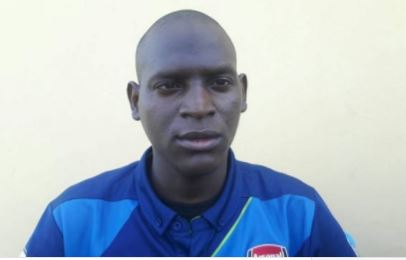
A former Boko Haram terrorist who participated in the brutal murder of many innocent people has shared his experience after repenting.
In a report by The Cable, Abdulkadir Abubakar revealed details of how he alongside other terrrorists massacred about 58 people in 2017.
Abubakar was arrested by the military at Buni Yadi when he allegedly went on an espionage mission ahead of the insurgents’ plot to attack the commander of the Special Force Training School. The insurgents blamed the military officer for killing one of their field commanders, Abu Fatima.
In a brief chat with TheCable, Abubakar confessed to taking part in the Buni Yadi massacre and the kidnap of Chibok girls two months later.
“Myself and two other Boko Haram commanders, Abu Fatima and Paper, led most of the attacks on schools in Yobe between 2013 and 2014,” he told TheCable.
He says the horrific attacks on schools and students were coordinated and executed through intelligence gathering and strategies mapped out under his supervision.
So changed is he now — or appears to be — that he does not have any kind words for Abubakar Shekau, the leader of the group which forbids Western education and wants to set up Islamic rule over Nigeria.
He claims Shekau “unilaterally” ordered attacks on schools, mosques, churches and markets, and also ordered abduction and rape.
“We were also the ones behind the abduction of students at Government Girls Secondary School, Chibok. We also carried out attacks on schools in Potiskum, Mamudo, Damagun, Wagir and Ngarzarma, all in Yobe state,” he recalls.
“I wholeheartedly regret my actions and hope the Almighty Allah will forgive me. Allah said he will forgive whoever repents and asks him for forgiveness. I have repented and seek forgiveness.”
He might have been forgiven — who knows? — but will the grieving parents and the entire Buni Yadi community forgive him?
Abubakar and his terrorist gangs not only snuffed life put of 58 teenage students, they made sure to destroy the school — once the pride of the society.
The school, established in 1994, represented Nigeria in Geo-Challenges at Florida, USA, in 2002; was state runner-up in the 4th Annual National Essay Competition for secondary schools organised by the Nigeria Stock Exchange (NSE) in 2003; came first in the 3rd National Quiz Competition on Capital Market for secondary schools organised by Security Exchange Commission (SEC); was state winner of the 6th and 10th NSE Annual National Essay Competition for Secondary Schools in 2005 and 2011 respectively; and was first at the zonal chess competition held in Jalingo, Taraba state, in 2012.
Today, the college still stands grim amid rubbles and ashes, making it appear as though a cremation has just occurred.
The aftermath has so erased its records of academic excellence that nothing seems to be known of its prior achievement.
Four years after its total ruin by Boko Haram, the residue is yet to be completely cleared, students who survived are going about with ambitions strangulated by lack of money, the bereaved parents are still agonizing over government’s neglect, and Buni Yadi, a town 55 kilometres from Damaturu, Yobe state’s capital, now has about 7,000 out-of-school children.
“The way I see it, it may take another two to three years before educational activity can return to this school,” Usman Ali-Grema, the college’s administrative officer, tells TheCable.
“But that also depends on if the money for capital project in the budget is released or not.”
He says the school was abandoned until renovation works started in 2016. This was after the Nigerian army had liberated the community from Boko Haram.
“Before then, nobody dared come to this community,” he adds.
It would have been a surprise for any student from the region to pass that year’s SSCE exams conducted by West Africa Examination Council (WAEC).
“Our students in Buni Yadi did not sit for the 2014 examination because of the incident. Out of 237,154 candidates that sat for the SSCE examination, only 79,490 of the total number, representing 33.51 percent obtained six credits and above,” Muhammad Machina, the chairman of the Teachers Parent Association (PTA) since 2002, reveals.
This, he says, was responsible for the setback in the education of the community.
Ali-Grema says the school is still offering admission to new intakes of junior secondary school one (JSS1). It operates from the Federal Government College, Potiskum, with which it shares same building. For him, this is a good omen that they will return to their permanent site someday.
“From the money released for capital projects in the budget, they have built almost all the classrooms, the administrative block, sick bay, and library. But there is still a lot to be done. The parts remaining are the kitchen, science laboratories, ICT (information communication technology) centres and bursary,” he adds.
Based on his account, the only money sent to rebuild the school is from the yearly federal budget, and he is not confident to say it is being released.
A sum of N150 million was allocated to this school in 2015, according to the country’s national budget. An estimated N136.7 million was for recurrent expenditure while only N13.5 million is for capital project (less than recurrent).
But it is not clear how much was actually released. In 2017, the total allocation increased to N263.9 million as total allocation, out of which N156.3 million is capital (which is far higher than previous) and N107 million is recurrent.
Notably, this school has the lowest allocation of all the 106 unity schools.
Even if the community forgives Abubakar, forgetting is not going to be easy as the scars remain unerasable.
No comments:
Post a Comment
Get more stories like this on our twitter @Abdul_Ent and facebook page @abdulkukublogspot